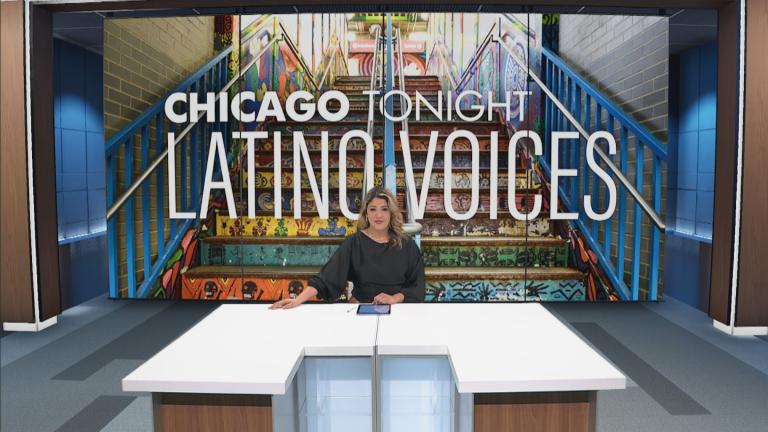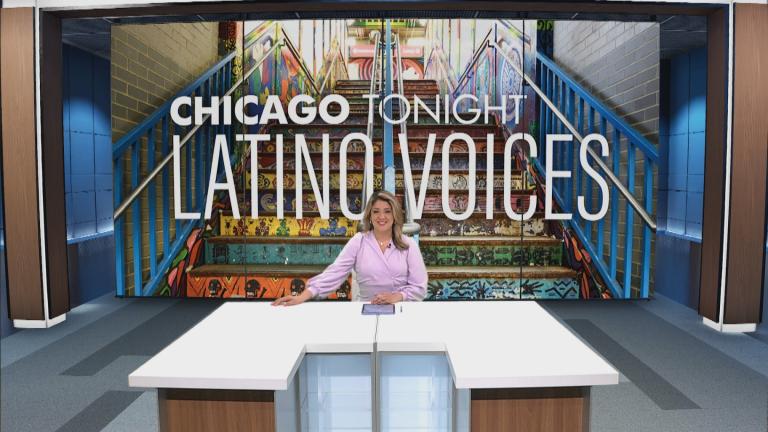The public health order known as Title 42 officially ended at 11:59 p.m. on May 11.
The policy allowed authorities to quickly expel migrants at U.S. borders in an effort to stop the spread of COVID-19. More than 2.8 million migrants were expelled, according to Customs and Border protection data. But the policy has also created more confusion and misinformation among the people who are seeking asylum in the U.S.
Helena Olea, director of programs at Alianza America, said the end of Title 42 will complicate an already chaotic situation at the border for the Biden administration.
“[The administration] really has to deal with the backlog of two and a half years of people trying to come to the U.S. to seek protection,” said Olea. “There’s also the expectation of what it means and that has also driven more people to the border.”
Anabel Mendoza, media relations specialist at Young Center for Immigrant Children’s Rights, said immigrant children and their families will see “devastating” effects.
“A lot of families and parents are going to be forced into situations where they’re going to have to separate or choose to separate from their children so that their children at least can have a shot at seeking asylum alone at the border,” Mendoza said. “And so really what we're going to see is de facto family separation as a result of this really cruel and inhumane policy.”
Olea adds that concerns surrounding the end of Title 42 have been raised by immigration advocates for some time, but the Biden administration has been slow to announce plans.
“I think this administration has had a long time to prepare for the changes that it is undertaking. The policies were announced very recently, and it is not clear how those policies are going to be put in place,” Olea said. “Greater understanding of how the CPB One App functions would make a great difference, understanding the parole program and who can apply to it and not would be great.”
Olea also said there is a new parole program for certain nationalities as well that is not particularly clear.
“People at the other side of the border are struggling with misinformation and disinformation on social media,” she said. “And so a more robust communications effort from this administration would really have made a change, a change and that the effort should have started months ago.”
The CPB One app’s launch was meant to streamline the process for asylum applicants. But its glitchiness and unreliability have been a point of difficulty for the Biden administration, Mendoza said.
“It assumes that people have access to a phone that has access to wifi and can secure an appointment on those apps, which is known to be difficult for family units in the language that these asylum seekers speak,” Mendoza said. “The app is only available in three different languages, so that already makes it difficult. If a family is able to secure one of the limited appointments on that app and make their asylum case, they are going to do so under expedited processes which really sets families up to fail.”
Olea said Mexico, which many South and Central Americans travel through to get to the U.S., is not living up to its obligations to provide asylum for refugees.
“They are signatories of the refugee convention and they also have an expanded definition of who is a refugee. The problem is that the asylum program in Mexico has been lacking resources and enough asylum offices in different parts of the country, including in the northern border so that individuals have a chance to seek protection in Mexico,” Olea said. “The second question is whether Mexico can really offer safety and the possibilities for integration. And so that’s why people do not feel safe in Mexico and they prefer to come to the U.S.”
Still, the U.S. also has legal obligations to asylum seekers, Mendoza pointed out.
“We have an obligation, both a moral and a legal one, to accept asylum seekers,” she said. “However they travel to the U.S., it should not matter which countries they come from. It should not matter how they got here.”
Mendoza sees the Biden administration as following “the policies of its predecessor under the Trump administration is really, really abhorrent and inhumane.”
“At the end of the day, what we need to remember is that these people are human beings, they deserve dignity, humanity and respect like anybody else,” Mendoza continued. “And as the wealthiest nation in the world, there’s really no excuse.”








